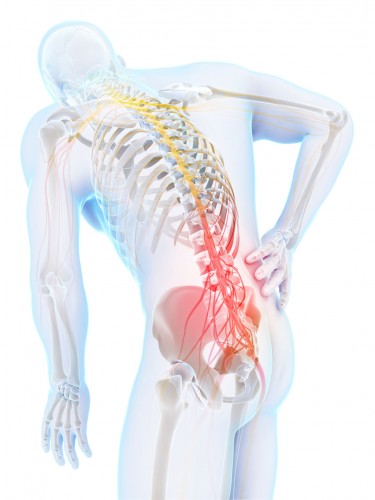Introduction
Spinal injuries can have profound effects on an individual’s health and quality of life. Recognizing the symptoms of spinal injuries early can lead to timely medical intervention, which is crucial for effective treatment. In this article, we will discuss how to recognize the symptoms of spinal injuries and the importance of consulting a specialist like Dr. Shashidhar B.K at the Bangalore Spine Specialist Clinic.

Understanding Spinal Injuries
Spinal injuries can occur due to various reasons, including accidents, falls, sports injuries, and degenerative conditions. They can affect any part of the spine, including the cervical (neck), thoracic (mid-back), lumbar (lower back), and sacral regions. Symptoms may vary depending on the location and severity of the injury.
Common Symptoms of Spinal Injuries
Identifying the symptoms of spinal injuries is essential for prompt diagnosis and treatment. Here are some common symptoms to watch for:
1. Pain
- Localized Pain: Sharp or dull pain in the back or neck can indicate a spinal injury. This pain may worsen with movement.
- Radiating Pain: Pain that spreads to the arms or legs can suggest nerve involvement, especially if accompanied by other symptoms.
2. Numbness and Tingling
- Loss of Sensation: Numbness or a tingling sensation in the extremities can indicate nerve compression or damage. This symptom may occur in the arms, hands, legs, or feet.
3. Weakness
- Muscle Weakness: Difficulty in moving the arms or legs may indicate a serious spinal injury. Weakness can be unilateral (one side) or bilateral (both sides).
4. Loss of Coordination
- Balance Issues: Difficulty walking or maintaining balance can be a sign of spinal cord injury. Coordination problems may also manifest as unsteady movements.
5. Bowel and Bladder Dysfunction
- Incontinence: Loss of control over bowel or bladder functions can indicate severe spinal injuries affecting the nerves responsible for these functions.
6. Changes in Reflexes
- Hyperactive or Diminished Reflexes: Abnormal reflex responses can indicate nerve damage. An examination by a healthcare professional can determine the nature of these changes.
7. Deformity
- Visible Deformities: Any noticeable change in the shape of the spine, such as a curvature or abnormal alignment, may suggest a spinal injury.
When to Seek Medical Attention
If you or someone else experiences any of the symptoms mentioned above, it is crucial to seek medical attention immediately. Delaying treatment can lead to complications, including permanent damage. Dr. Shashidhar B.K, a renowned spine surgeon at the Bangalore Spine Specialist Clinic, specializes in diagnosing and treating spinal injuries.
Diagnostic Procedures
Upon visiting a specialist, several diagnostic procedures may be employed to assess the extent of the injury:
- Physical Examination: A thorough physical examination will help the doctor evaluate symptoms and determine the appropriate next steps.
- Imaging Tests: X-rays, MRI, or CT scans may be ordered to visualize the spine’s structure and identify any damage to the vertebrae or spinal cord.
- Nerve Function Tests: Electromyography (EMG) or nerve conduction studies may be conducted to assess nerve function and detect any abnormalities.
Treatment Options
Treatment for spinal injuries varies based on the severity and location of the injury. Options may include:
1. Conservative Treatment
- Rest and Activity Modification: Reducing physical activity and allowing time for healing can be effective for minor injuries.
- Physical Therapy: Rehabilitation exercises can help strengthen the back and improve mobility.
- Medications: Pain relievers and anti-inflammatory medications may be prescribed to manage pain and inflammation.
2. Surgical Intervention
For severe spinal injuries, surgical options may be necessary. Dr. Shashidhar B.K utilizes advanced techniques to ensure the best outcomes for his patients. Surgical procedures may include:
- Decompression Surgery: Relieving pressure on the spinal cord or nerves.
- Spinal Fusion: Stabilizing the spine by fusing two or more vertebrae together.
- Disc Replacement: Replacing damaged intervertebral discs to alleviate pain and restore function.
Prevention of Spinal Injuries
While not all spinal injuries can be prevented, certain measures can reduce the risk:
- Exercise Regularly: Strengthening the core muscles can help support the spine.
- Practice Good Posture: Maintaining proper posture can alleviate stress on the spine.
- Use Safety Gear: Wearing appropriate protective equipment during sports and activities can prevent injuries.
- Be Cautious: Taking care when lifting heavy objects and avoiding slippery surfaces can minimize the risk of falls.
Conclusion
Recognizing the symptoms of spinal injuries is crucial for timely intervention and treatment. If you suspect a spinal injury, do not hesitate to seek medical advice from a qualified specialist. Dr. Shashidhar B.K at the Bangalore Spine Specialist Clinic is dedicated to providing comprehensive care for spinal injuries, ensuring the best possible outcomes for his patients. Remember, early detection and treatment can make a significant difference in recovery and quality of life.
